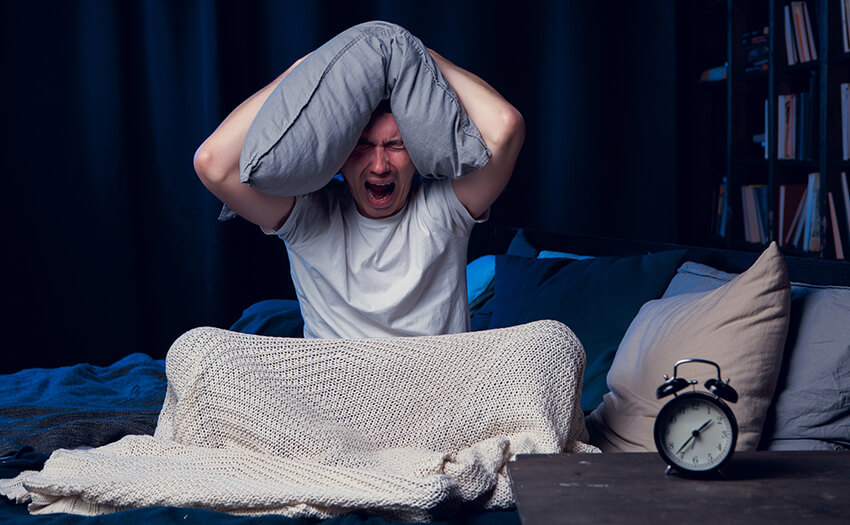
Let’s be real — few things are more frustrating than lying in bed, staring at the ceiling, while your brain runs marathons. If you’ve had nights like that (or too many of them), you’re not alone. Millions struggle with insomnia, and it’s not just about tossing and turning — it’s about how it affects your whole life.
As a sleep doctor at Serapis, I’ve seen just how powerful good sleep can be — and how hard it is when it disappears. So today, I want to walk you through why insomnia happens, and more importantly, how to fight it without relying on sleeping pills.
😩 Why Can’t I Sleep? The Real Causes of Insomnia
Insomnia isn’t just “being bad at sleeping.” It’s usually a mix of mental, physical, and lifestyle factors all tangled together. Here are the big ones:
1. Stress & Worry (Your Brain Won’t Turn Off)
Anxious about work? Overthinking a conversation? Dreading tomorrow’s to-do list?
These thoughts fire up your brain when it should be powering down. And ironically, worrying about not sleeping often makes it worse. That’s a cycle we want to break.
2. Habits That Sneak In
Little things can mess up your sleep more than you’d expect:
- Going to bed and waking up at totally different times every day
- Long naps in the afternoon
- Scrolling TikTok in bed (guilty)
- Working out too late or drinking caffeine too late
Even lying in bed for hours trying to sleep can teach your brain that bed = stress.
3. Body Stuff (Hormones, Pain, and Breathing)
Sometimes the problem is deeper:
- Hormone shifts (like menopause)
- Chronic pain (like back or joint pain)
- Breathing problems like sleep apnea (if you snore or wake up gasping)
If your body’s not on board, your brain can’t do all the work alone.
🧠 “Can I Fix This Without Pills?” Yes. Let’s Talk Non-Drug Sleep Strategies.
Sleeping pills might help you fall asleep for now, but they often don’t fix the real issue — and can lead to grogginess, dependence, or even worse sleep over time.
That’s why I always start with science-backed, non-drug approaches. Here are my top four.
✅ 1. CBT-I: The Gold Standard (Don’t Worry, It’s Not Therapy-Therapy)
CBT-I stands for Cognitive Behavioral Therapy for Insomnia. It’s the #1 recommended treatment by sleep experts — and for good reason. It actually retrains your brain and body to sleep better, without medication.
CBT-I includes:
- Sleep restriction: Less time in bed? Weirdly, yes. It helps build stronger “sleep drive.”
- Stimulus control: Only use the bed for sleep. No Netflix, no doomscrolling, no late-night snacks.
- Cognitive tweaks: Replace thoughts like “I’ll never sleep again” with “Sleep will come when it’s ready.”
- Relaxation skills: Learn how to calm your system down.
- Better sleep habits: Lights, noise, bedtime routines — they all matter.
🧪 Fun fact: CBT-I is just as effective as sleeping pills in the short term — and way better long term.
🧘♀️ 2. Chill Your System: Simple Relaxation Techniques
If your mind feels like it’s running a race at bedtime, you’re not crazy — that’s your nervous system staying stuck in “go mode.” These methods help:
- Progressive Muscle Relaxation (PMR): Tense, then relax each muscle group from toes to forehead.
- Box Breathing: Inhale 4 seconds → hold 4 → exhale 4 → hold 4. Repeat a few times.
- Guided imagery: Picture a calming place — a beach, forest, or somewhere peaceful.
Even 10 minutes can reset your inner stress dial.
📟 3. Biofeedback: Your Body Talks, You Learn to Listen
This one’s cool. Biofeedback uses small sensors to track your heart rate, breathing, or even skin temperature — and then shows you how to control those signals.
It teaches you to relax in a super physical way, like training a new superpower.
🧘 4. Mindfulness (aka: It’s OK to Be Awake for a While)
Mindfulness isn’t about forcing sleep. It’s about learning to be okay with being awake sometimes — without spiraling.
With Mindfulness-Based Stress Reduction (MBSR), you practice:
- Acceptance: “It’s okay if I don’t fall asleep right away.”
- Staying present: Instead of imagining tomorrow being ruined, just notice the breath.
- Less judgment: Let go of the “shoulds” — I should be asleep, I should feel tired, etc.
The result? Your brain chills out. And sleep sneaks in.
🌟 Final Words from Me (Dr. Parker)
Look, insomnia is hard. But it’s not hopeless, and it’s definitely not forever.
The most powerful tools are already within your reach:
- Restructuring your sleep habits
- Calming your nervous system
- Letting go of the fight with sleep
At Serapis, our job is to support that process. Our sleep devices are built to create a calm, screen-free environment with soothing sounds, soft lighting, and no app distractions. They’re not magic — but they’re made to help your natural sleep system do what it does best.
So next time you find yourself staring at the ceiling, remember: you’ve got options.
And we’re right here with you.
— Dr. Emily Parker
Sleep Medicine Specialist, Serapis
